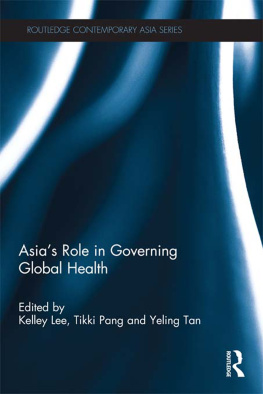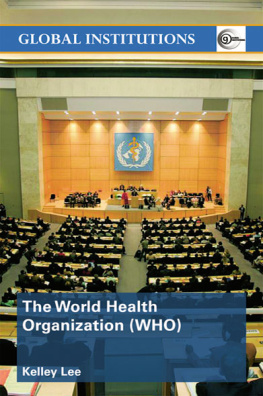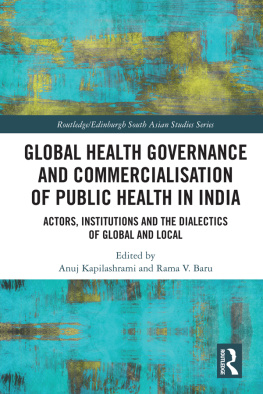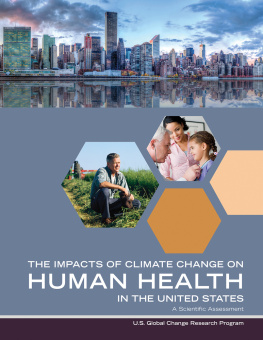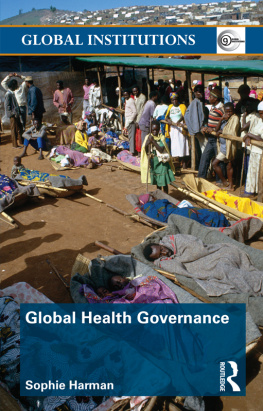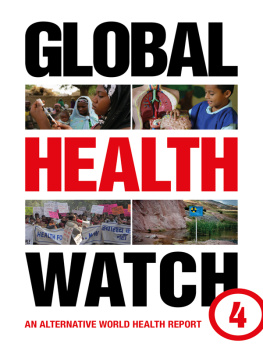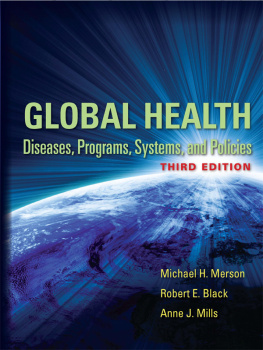Asias Role in Governing
Global Health
Asia is rising. The West is not. Similarly, Asian health standards and practices are improving significantly: from the discovery of a new virus in Malaysia to a cost-innovative approach to head surgery in India or to an innovative universal health insurance scheme in Thailand. In short, the world can learn a lot from Asia in this area. And it can also pay more attention to Asian ideas for improving global health governance. This is why this book is both timely and valuable: it provides new and unique insights into new thinking and developments in Asia. Both academics and practitioners will profit by studying this volume in depth.
Kishore Mahbubani, Dean
Lee Kuan Yew School of Public Policy
National University of Singapore
The first of its kind, this informative and insightful volume assembles some of the worlds leading global health scholars to examine Asian countries participation in global health governance. It not only addresses some critical issues of global health governance, but also explores the distinctiveness of Asias conceptions of and contributions to global health governance. It should be of strong interest to students, scholars, practitioners, even laypeople who are keen to learn more about the rise of Asia and its global governance implications.
Yanzhong Huang, Editor
Global Health Governance
With its stellar list of authors from around the world, this book should be required reading for anyone who wants to be sure that global health is not left behind in the changing world order.
David L. Heymann
Head and Senior Fellow, Centre on Global Health Security,
Chatham House, London
This publication is a stellar example of the convergence of technical deliberations and research outputs as policy relevant-normative input beyond that it is also an important contribution in global health from a region that is fast emerging as an epicenter.
Sania Nishtar, Founder and President
Heartfile
Global geopolitics and health are undergoing unprecedented transitions. How is Asias growing influence linked to the governance of global health? This book reveals surprising and compelling answers.
Richard Horton, Editor,
The Lancet
The distinguished editors, all with close connections to Asia, have put together a significant contribution to the field of global health politics. The book covers a major gap in the academic literature, Asian countries approach to global health governance. It is essential reading for those working at the interface of global health and international relations.
Devi Sridhar
Department of Public Health, University of Oxford
Health is occupying an increasingly central role in the global agenda, and Asia has become one of the leading regions in the world. The message of the book edited by Lee, Pang and Tan is that the overlap of these two processes is one of the key developments of our times. This book addresses with clarity, vision and ambition a topic of enormous relevance for everyone working at the intersection of health and globalization.
Julio Frenk
Dean of the Harvard School of Public Health
In an era of rapid and extensive globalisation, the world faces a wide range of transboundary problems that require effective collective action. Key among these are threats to human health that do not recognise national borders, and include emerging and re-emerging infections, rising rates of chronic diseases, inadequate access to affordable and safe medicines, spreading anti-microbial resistance and the health effects of climate change. These threats require a transnational response and thus pose significant challenges to global health governance, as well as to long established notions of national sovereignty.
This book investigates the neglected question of the impact of a rising Asia on the management of transboundary health problems. The chapters examine the role played by Asia in the governance of a range of global health issues, from development assistance in health, to global health instruments dealing with tobacco control and disease outbreaks, to health research and knowledge products, and the book concludes by examining the broad themes of a rising Asias role in the complexity of global health governance. The various analyses are tied together by a common focus on Asian countries use of the sovereignty principle, and seek to understand how traditional notions of national sovereignty can both clash with, and enhance, governance objectives in global health. In addition, the contributors examine the interaction between global, regional and domestic institutions, and present current ideas in Asia on the challenge of governing global health.
With an inter-disciplinary approach that combines international relations, public policy and public health, this book will be invaluable to both scholars and policy makers working in these fields, as well as Asian politics, social policy and governance more generally.
Kelley Lee is a Professor in the Faculty of Health Sciences, Simon Fraser University, Canada and the London School of Hygiene and Tropical Medicine, UK.
Tikki Pang is a Visiting Professor at the LKY School of Public Policy, National University of Singapore and was previously Director of Research Policy & Cooperation, World Health Organization, Geneva, Switzerland.
Yeling Tan is a PhD candidate at the John F Kennedy School of Government, Harvard University, USA.
Routledge Contemporary Asia Series
1. Taiwan and Post-Communist Europe
Shopping for Allies
Czeslaw Tubilewicz
2. The Asia-Europe Meeting
The Theory and Practice of Interregionalism
Alfredo C. Robles, Jr
3. Islamic Legitimacy in a Plural Asia
Edited by Anthony Reid and Michael Gilsenan
4. Asian-European Relations
Building Blocks for Global Governance?
Edited by Jrgen Rland, Gunter Schubert, Gnter Schucher and Cornelia Storz
5. Taiwans Environmental Struggle
Toward a Green Silicon Island
Jack F. Williams and Chang-yi David Chang
6. Taiwans Relations with Mainland China
A Tail Wagging Two Dogs
Su Chi
7. The Politics of Civic Space in Asia
Building Urban Communities
Edited by Amrita Daniere and Mike Douglass
8. Trade and Contemporary Society Along the Silk Road
An Ethno-History of Ladakh
Jacqueline Fewkes
9. Lessons from the Asian Financial Crisis
Edited by Richard Carney
10. Kim Jong Ils Leadership of North Korea
Jae-Cheon Lim
11. Education as a Political Tool in Asia
Edited by Marie Lall and Edward Vickers
12. Human Genetic Biobanks in Asia
Politics of Trust and Scientific Advancement
Edited by Margaret Sleeboom-Faulkner
13. East Asian Regionalism from a Legal Perspective
Current features and a vision for the future
Edited by Tamio Nakamura
14. Dissent and Cultural Resistance in Asias Cities
Edited by Melissa Butcher and Selvaraj Velayutham
15. Preventing Corruption in Asia
Institutional Design and Policy Capacity
Edited by Ting Gong and Stephen Ma
16. Expansion of Trade and FDI in Asia
Strategic and Policy challenges
Edited by Julien Chaisse and Philippe Gugler
17. Business Innovation in Asia
Knowledge and technology networks from Japan
Dennis McNamara
18. Regional Minorities and Development in Asia
Edited by Huhua Cao and Elizabeth Morrell

